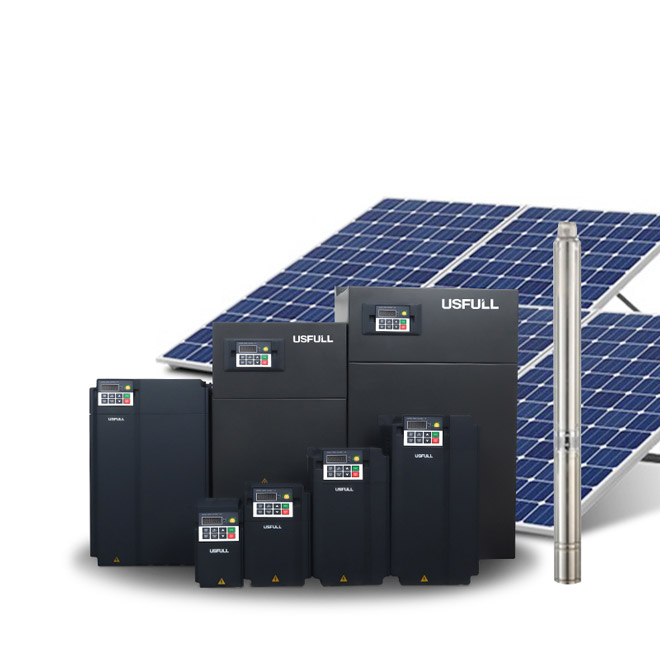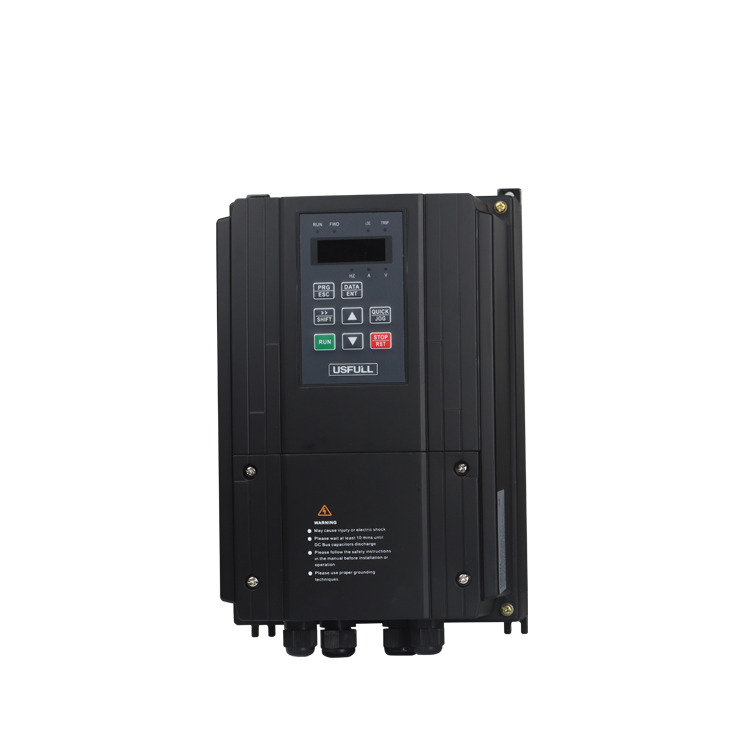Introducción
USFULL ha completado recientemente con éxito un proyecto en Ciudad Ho Chi Minh, Vietnam, suministrando convertidores de frecuencia de alto rendimiento para un sistema de prueba de frenos de vehículos. El objetivo del proyecto era mejorar la precisión y la eficiencia de las pruebas de frenado de automóviles utilizando la última tecnología de variadores de frecuencia (VFD). La instalación presentaba soluciones avanzadas, mostrando la fiabilidad y robustez de los VFD de USFULL en aplicaciones exigentes como las pruebas de automoción.
Análisis del mercado de los convertidores de frecuencia en Vietnam
El mercado vietnamita de convertidores de frecuencia ha crecido rápidamente, impulsado por la creciente industrialización y automatización. En particular, ha aumentado la demanda de variadores de frecuencia en sectores como la fabricación, la automoción y la industria pesada. Las soluciones de variadores de velocidad de USFULL ofrecen ventajas significativas en este mercado. Los variadores de frecuencia de la empresa son conocidos por su capacidad de ahorro energético, su control mejorado del motor y su facilidad de integración, factores todos ellos clave para satisfacer la demanda local de tecnologías eficientes y rentables. Al proporcionar soluciones avanzadas de VFD, USFULL ayuda a las empresas vietnamitas a reducir el consumo de energía, mejorar la productividad y prolongar la vida útil de la maquinaria crítica.
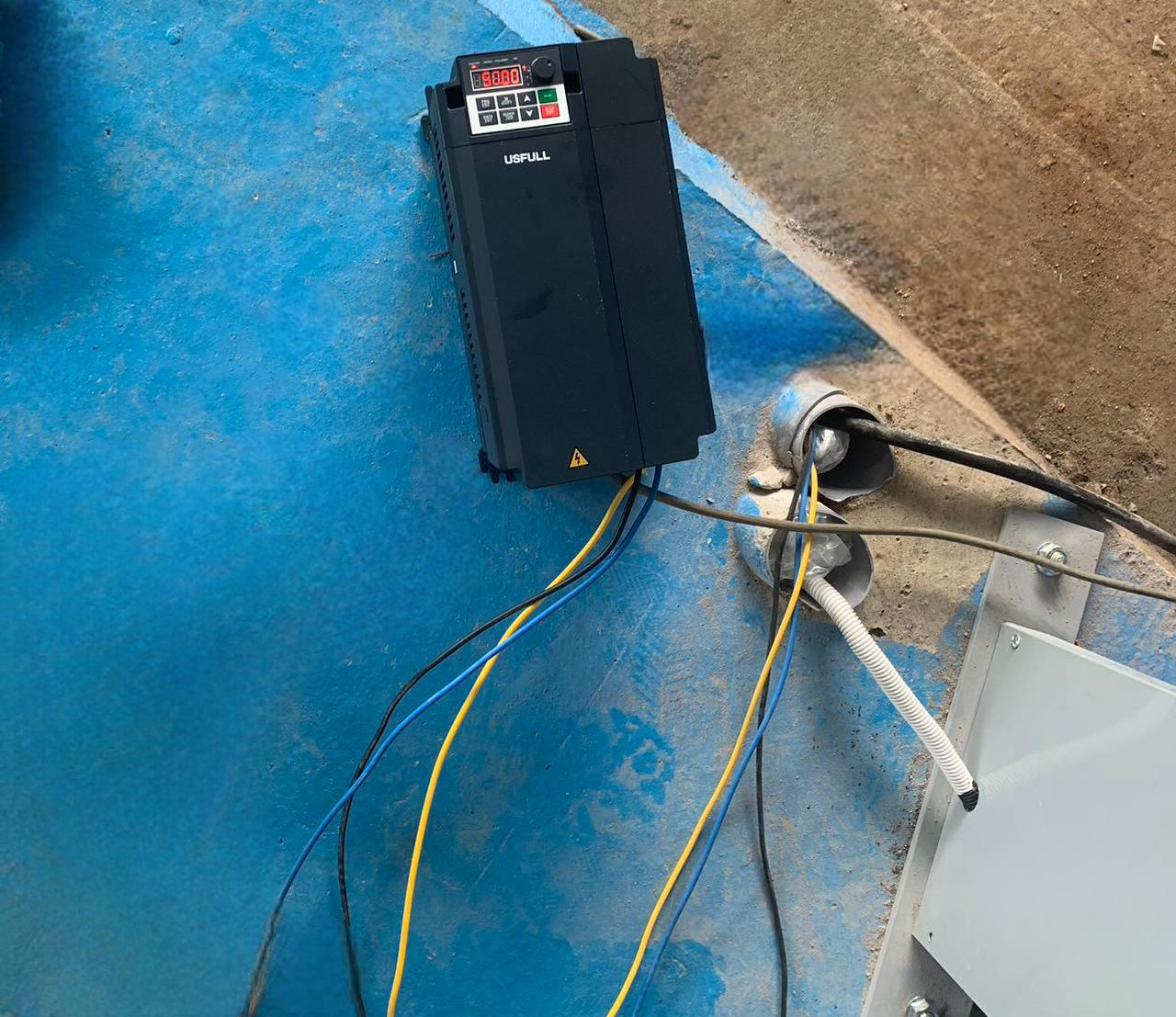
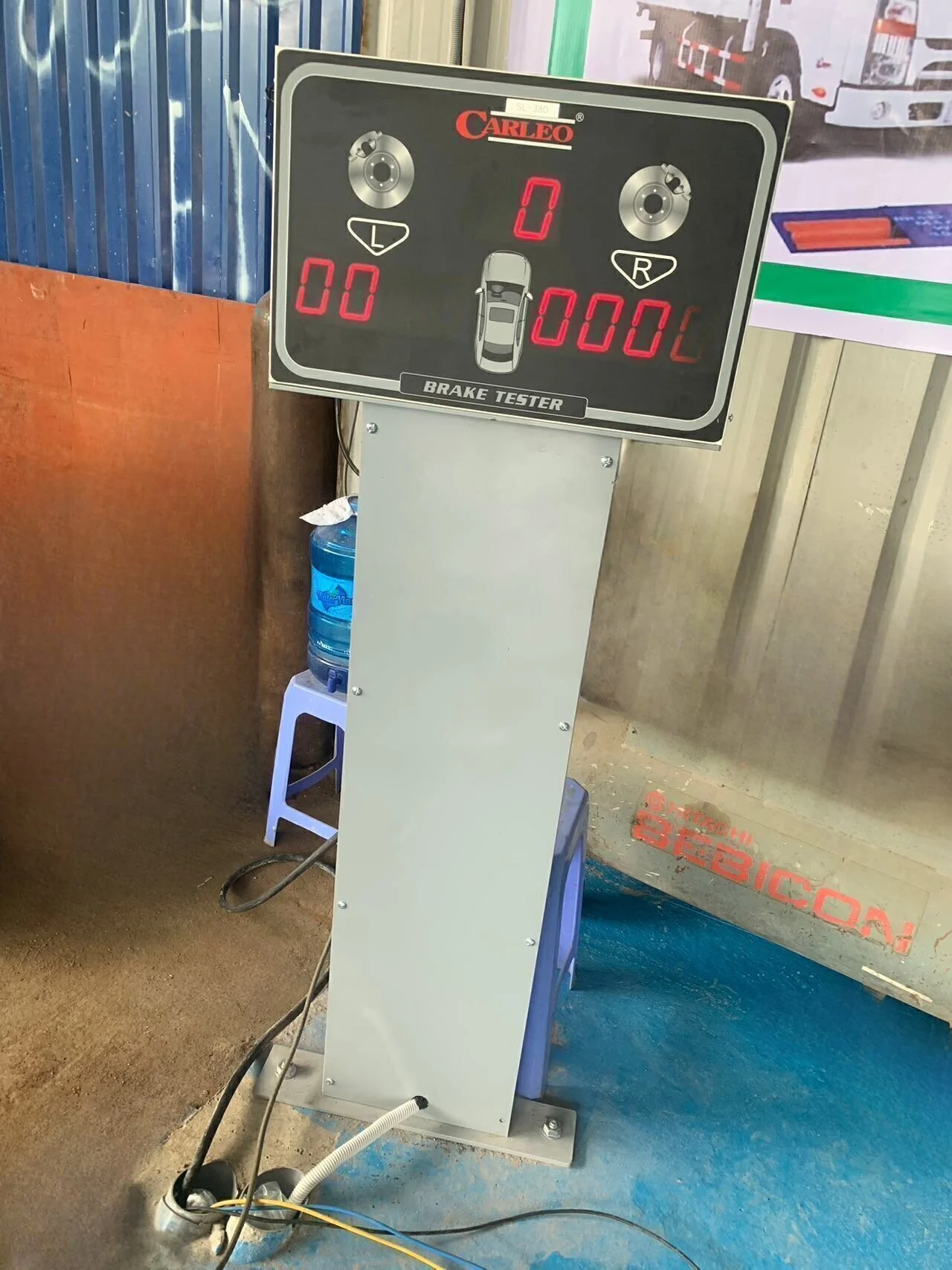
Detalles del proyecto
El componente central del proyecto era un frenómetro para coches, diseñado específicamente para comprobar la eficacia y el rendimiento de los sistemas de frenado de los vehículos. El inversor de frecuencia utilizado en este sistema era un inversor de frecuencia variable monofásico de 5,5 kW y 220 V de entrada y trifásico de 220 V de salida. Esta configuración alimentaba un motor trifásico de 220 V de 2,2 kW. Para garantizar un funcionamiento sin problemas, el variador de frecuencia se integró con un sistema de control remoto. A través de este control remoto, los operarios podían abrir o cerrar fácilmente el arrancador suave, que conecta el variador de frecuencia al motor, asegurándose de que los contactores del interior del arrancador suave se desconectaran o conectaran según fuera necesario.
Uno de los ajustes clave del variador de frecuencia era el modo de parada libre, configurado en P6-10: 1 Parada por inercia. Este ajuste permitió que el VFD detuviera el motor de forma suave y segura sin aplicar un frenado repentino, lo que es crucial para obtener resultados precisos en las pruebas de frenado.
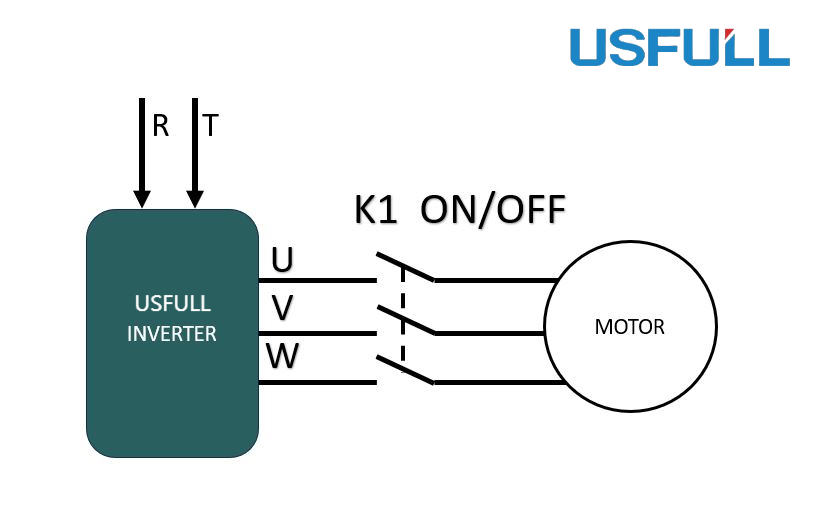
Solución técnica: USFULL VFD para equipos de ensayo de frenos de vehículos
El variador de frecuencia de tipo general FU9000D de USFULL fue seleccionado para este proyecto por su versatilidad, facilidad de uso y facilidad de mantenimiento. Este variador de frecuencia ofrece una solución completa para controlar la velocidad del motor, garantizar una tensión estable y proporcionar opciones de ahorro de energía. En este sistema de comprobación de frenos, el FU9000D ayudó a mejorar la salida de par y el rendimiento general del motor, algo fundamental para un diagnóstico preciso de los frenos. Además, la capacidad del variador para proporcionar control transversal y protección del motor garantizó que toda la operación de prueba de frenos fuera eficaz y fiable.
Al aprovechar la avanzada tecnología VFD de USFULL, el sistema de comprobación de frenos no sólo mejoró la precisión del diagnóstico de los vehículos, sino que también redujo el consumo energético del sistema. Esta combinación de ahorro energético y alto rendimiento pone de manifiesto las ventajas que los variadores de velocidad aportan a las aplicaciones de pruebas de automoción en Vietnam.
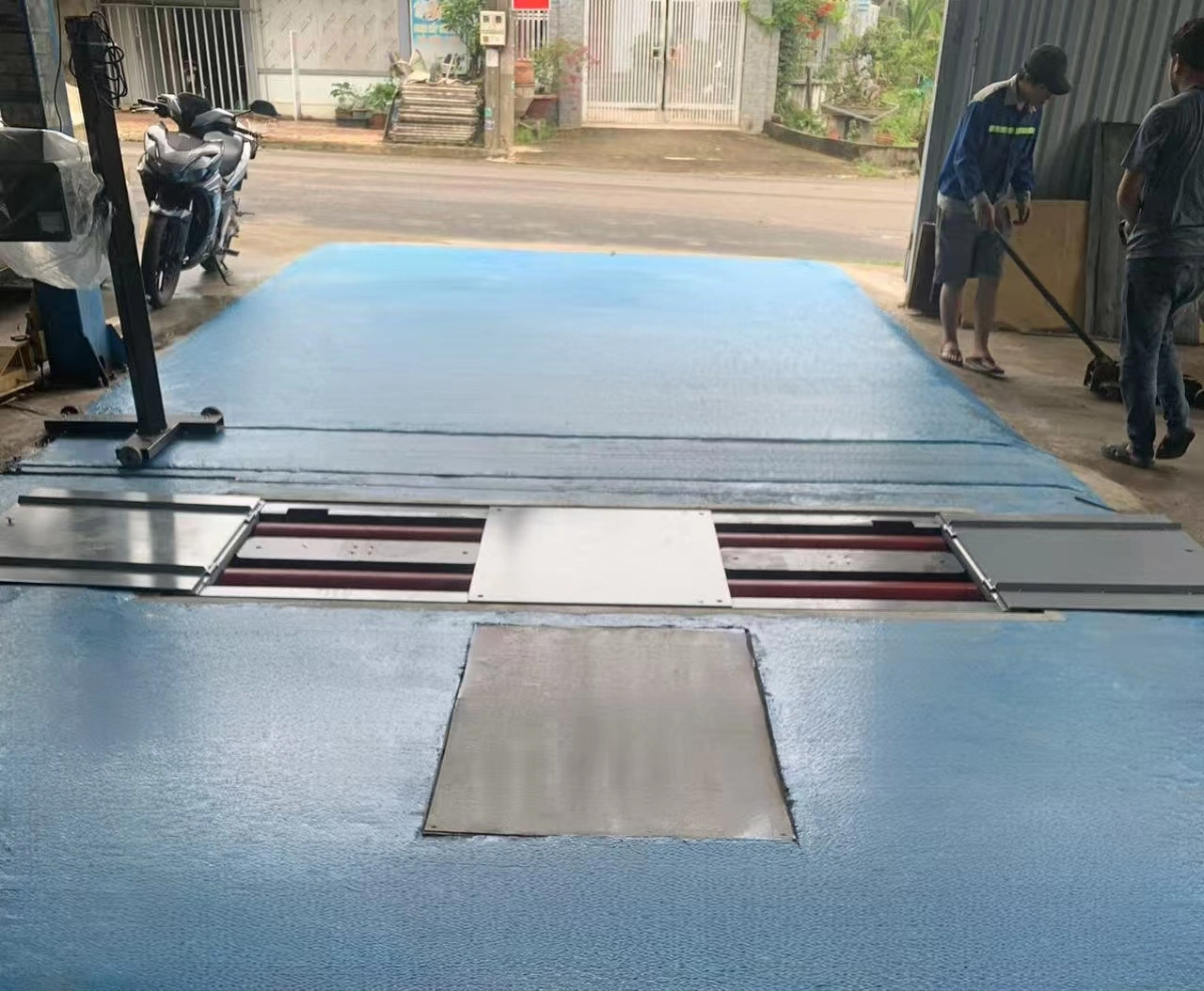
Conclusión
El proyecto de USFULL en Ciudad Ho Chi Minh demuestra la potencia y flexibilidad de sus variadores de frecuencia en aplicaciones reales. Con la creciente demanda de soluciones automatizadas en Vietnam, los variadores de frecuencia de USFULL están llamados a convertirse en una tecnología clave en diversas industrias. La exitosa implantación en el sistema de prueba de frenos de vehículos muestra cómo los variadores de frecuencia pueden mejorar la eficiencia operativa, reducir costes y aumentar la longevidad de los equipos.


